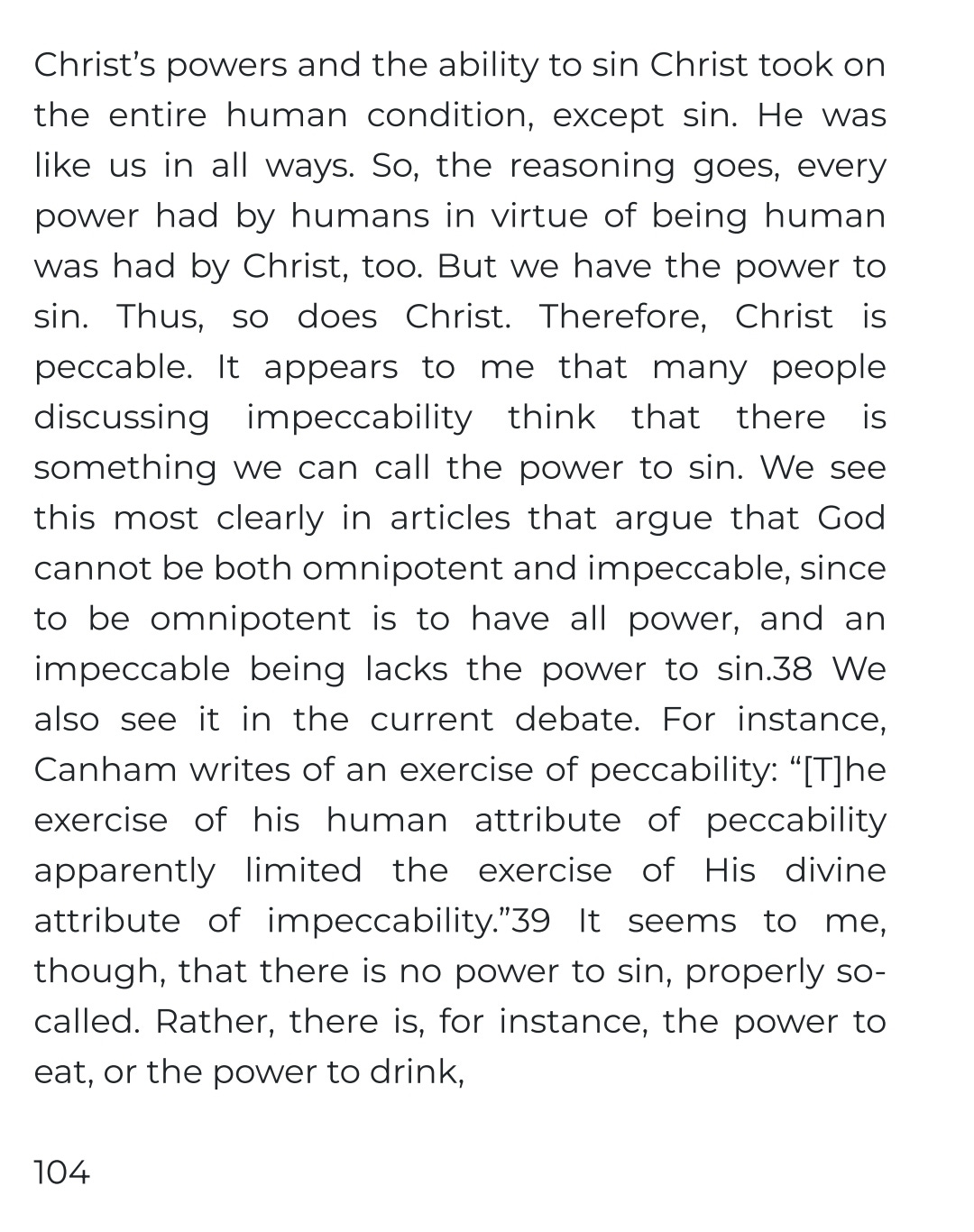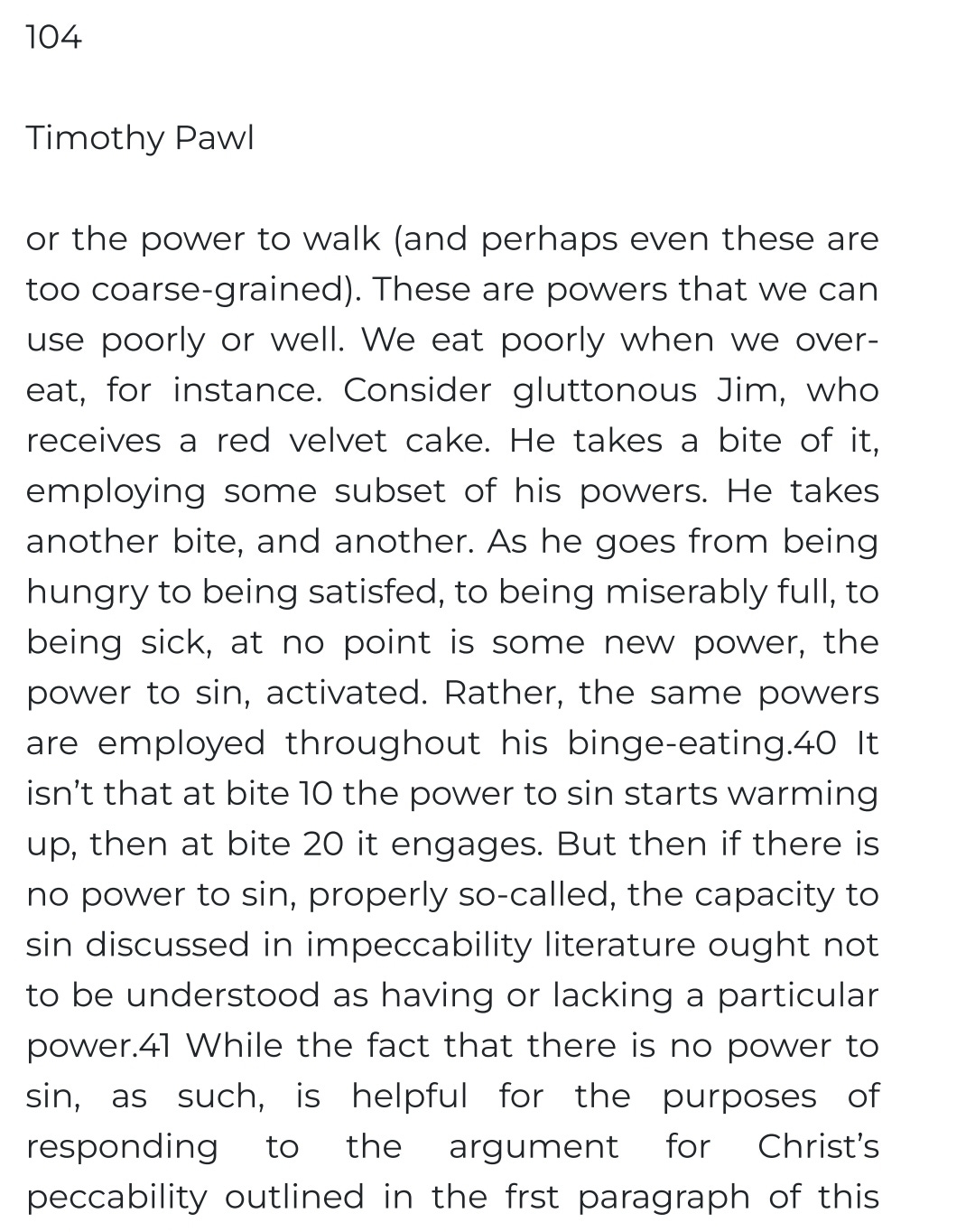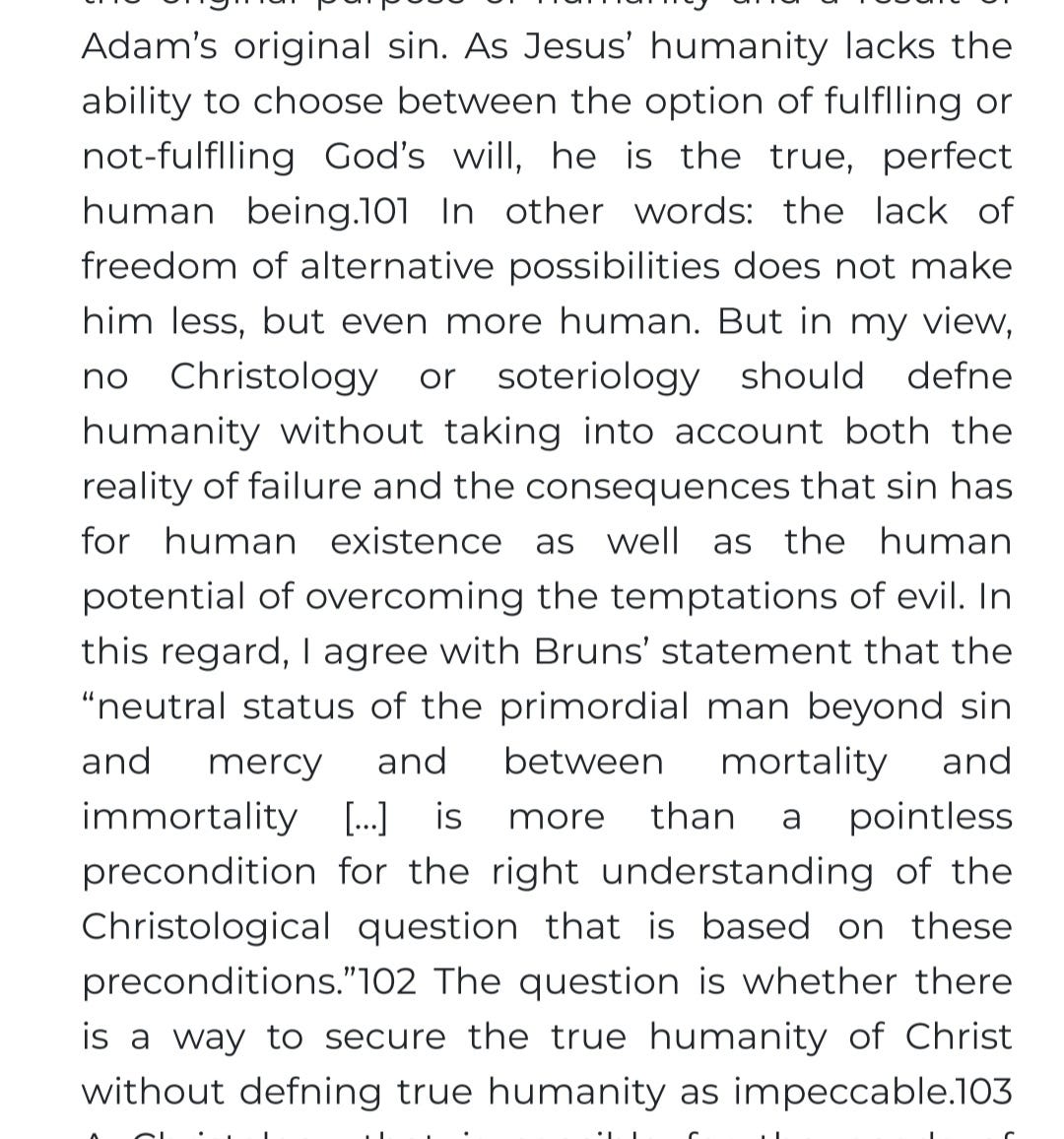impeccable impassibility, peccable impassibility, impeccable passibility & peccable passibility?
Consider this Modal Tetrad of Tropic Couplets:
impeccable impassibility
peccable impassibility
impeccable passibility
peccable passibility
In terms of im/passibility & im/peccable, which tropic couplets correspond to modes of human existence that are operating properly or improperly? and, also, which of these tropic couplets are operative protologically, historically &/or eschatologically?
Which of these couplets correspond to im/proper tropic perceptions of the logoi of human nature? And which such misperceptions arise from corruption (are alien) vs immaturity (are juvenile)?
In the above exercise, I’ve stipulated that we are referring to tropic (e.g. exercise of the will & expressions of logoi) not natural human aspects (e.g. the will, every rational nature’s most proper & primary property).
I also stipulate that ontic priority belongs to personal whos not natural whats.
Importantly, I also stipulate that, concretely vis a vis tropoi, culpability pertains to personal acts, while gnomic tendencies, passibility, corruption & death can be experienced quite innocently, e.g. the last 3 by Jesus. Above, the first category of gnomi refers to an ignorance of our natural logoi of protological being, historical well being & eschatological eternal well being. Gnomi could not, in principle, refer to Jesus, and do not refer, constitutively, to any element of the logos of our human nature.
This all further implies tropic deliberative distinctions, such as between our fallibile deliberations of ignorance & peccable deliberations of sinful inclinations.
We are sufficiently free, then, for our personal tropoi to follow or deviate from our ontological logoi.
I’ve also stipulated to a Cyrilline economic distinction between what’s given by nature (essentially) or by graces (divine presences) and further recognize a distinction between what’s given by mediated or immediate divine presences, both which will present in degrees.
This all presupposes that our personal tropoi can be divinized by grace precisely because the logos of our natural will has already been divinized per the hypostatic union.
The above exercise, implicitly, asks:
Which divine will is operating in any given providential context:
the good (e.g. cosmic deifications as ends),
dispensatory (e.g. maturation processes as primary means) or
concessive (anticipatory modal remedies as secondary means)?
Conclusion:
Have I solved this matrix yet?
No, I haven’t. I’ve been too busy designing it, i.e. compiling the questions rather than formulating the answers. But I have both some definite ideas & some tentative.
Addendum:
Whose Peccability?
Which Capacity?
How much conceptual weight is being supported by words like able, can & capacity in the context of any given discussion of peccability?
Below, I grapple only with the felicity of the concept, capacity, when it’s been used to characterize peccability, most especially when it’s mistaken to mean power.
If we characterize peccability in terms of capacity (as almost all do), we’ll need to explicitly disambiguate capacity to exclude such notions as an “exercise of peccability” or a “power to sin” (as almost all have not).
There’s a bruteness to the nonformal aspects of personhood, an ineffability to idiomata, haecceities & our distinct concrete acts, which are peculiar personal expressions of power.
Using Damascene’s distinctions between the operative, operating, operator & operated may be helpful here, as I map them to essences, energeia, entities (personal & social) & effects.
As operators, we, as personal entities, employ our co-creative power to concretely express & exercise what’s operative per our essence. Essentially, our will is our most proper & primary property.
All that said:
There is no operative essence that includes peccability.
There is no entity or operator who, strictly speaking, has a power to sin.
cf excerpts, below, from “Conciliar Christology, impeccability, and temptation” by Timothy Pawl
So, what I want to emphasize, in drawing a distinction between fallibility & peccability, is that the latter is not essential to being human, not constitutive to any element of the logos of our human nature. It refers to the personal, modal & tropic, to hypostatic realizations & not reducible potencies of our primary nature, to hypostatic idiomata not natural propria, to the will’s actus not potentia and so on.
Below, I liberally paraphrase Cornelia Dockter from her “God’s work and human’s contribution Jesus’ sinlessness in Theodore of Mopsuestia’s Christology.“
Indeed, as we lose peccability, we grow in authenticity, hence in freedom. The relative perfection (not the same as imperfection) of human nature precisely derives from an essential lack of the ability to choose between such options as fulfilling God’s will or not. As Goodness, Himself, Jesus’ “lack” of freedom of alternative possibilities (apparent vs real goods) makes Him even more – not less – human, i.e. True Man.
Relatively perfect, then, we’re sufficiently free & adequately determined, so neither absolutely free nor wholly determined. Per tropos, we do follow or deviate from the logos of our nature. Some acts are mistakes, others culpable & yet others – co-creative & synergistic. Some acts are productive & others privative. Some acts actualize or obscure our essential teloi and either fulfill or frustrate our tropic teloi. What’s going on is rather complicated. If we were so simple that we could understand our rational nature, we would be too simple to understand it.






